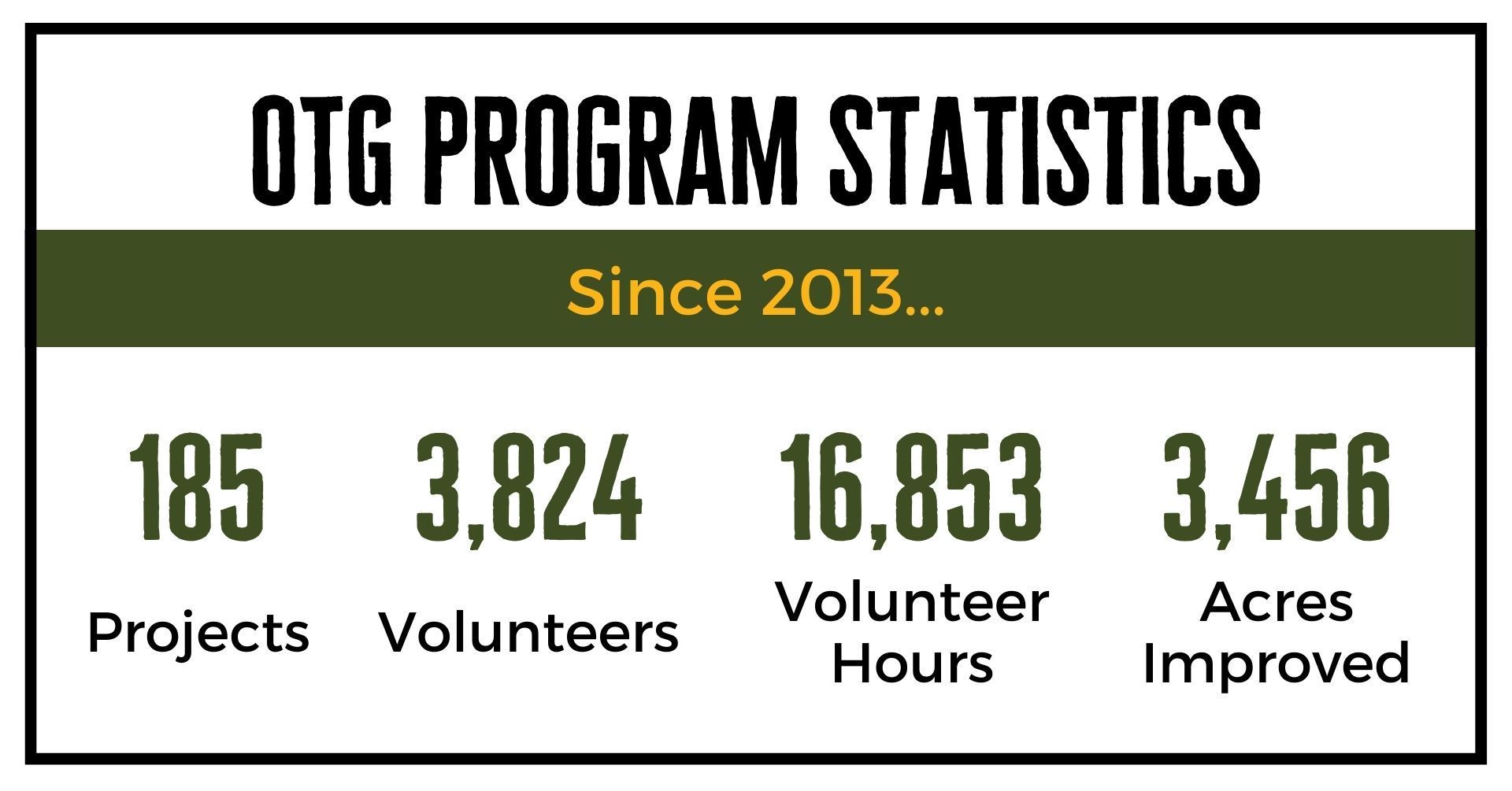On the Ground: A Year in Review
During the 2021-2022 fiscal year, On the Ground volunteers showed up to improve wildlife habitat and recreational access on Michigan’s public lands. Through 22 OTG projects, 546 volunteers spent more than 1,515 hours improving 255 acres of wildlife habitat throughout the state!
In 2022, grade schools participated in 6 habitat improvement projects, making students a large portion of our volunteer base. Student volunteers put their boots to the ground to plant mast-producing trees and shrubs, install pollinator gardens, and improve grassland habitat for upland wildlife.
Over the course of the year, the OTG program was able to build upon past projects and partnerships as well as create a few new ones. Since October 2020, OTG volunteers have joined The Nature Conservancy at Petersburg State Game Area to continue work on an oak opening project by planting native blazing star plants. These continued efforts benefit game species as well as songbirds and other pollinators that rely on this unique ecosystem type.
We were also excited to foster new partnerships during the last fiscal year. This summer we partnered with Kellogg Community College to host a clean-up of the wetland area that is encompassed by Linear Path on campus. The partnership between MUCC and KCC was sparked after each organization (along with Battle Creek’s Willard Library) received generous donations from the estate of late KCC professor and conservationist, Dean Barnum. At this event, we celebrated the life and legacy of Dean and took this opportunity to collectively improve habitat in an area enjoyed by humans and wildlife alike.
Heading in to the new fiscal year, we look forward to continuing to welcome volunteers of all ages and backgrounds, consumptive and non-consumptive users of the land and anyone who wants to be an active steward for Michigan’s public lands to join us in improving wildlife habitat in our great state.
To view an interactive map featuring our completed projects or to register for any one of our upcoming projects, visit mucc.org/on-the-ground/. Please contact Habitat Volunteer Coordinator Kristina Kennedy at kkennedy@mucc.org for questions regarding the OTG program.

The post On the Ground: A Year in Review appeared first on Michigan United Conservation Clubs.
Recent Posts



